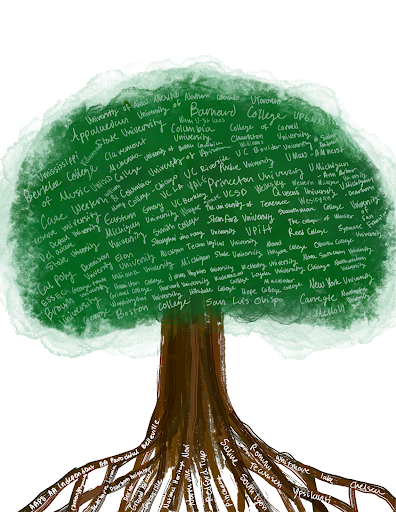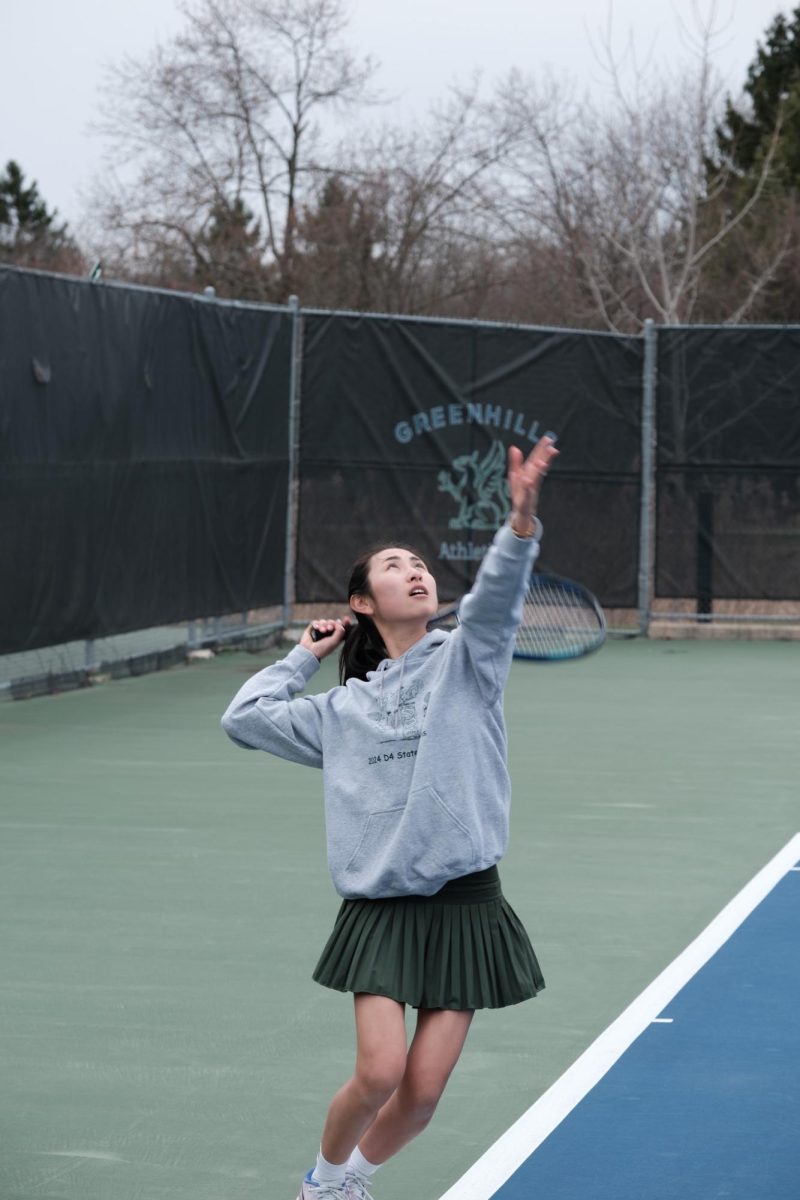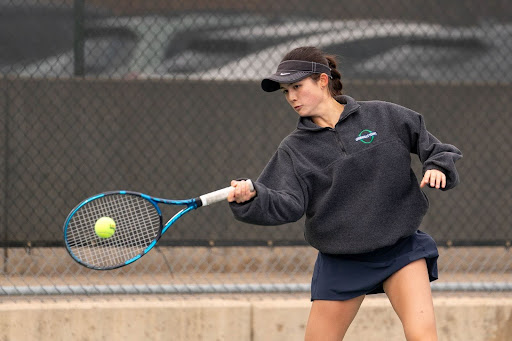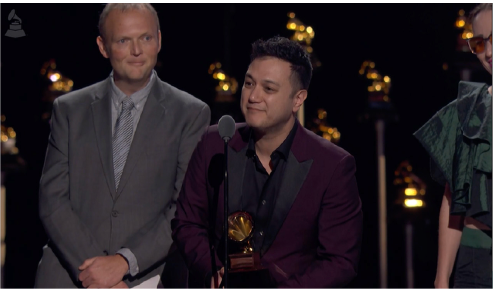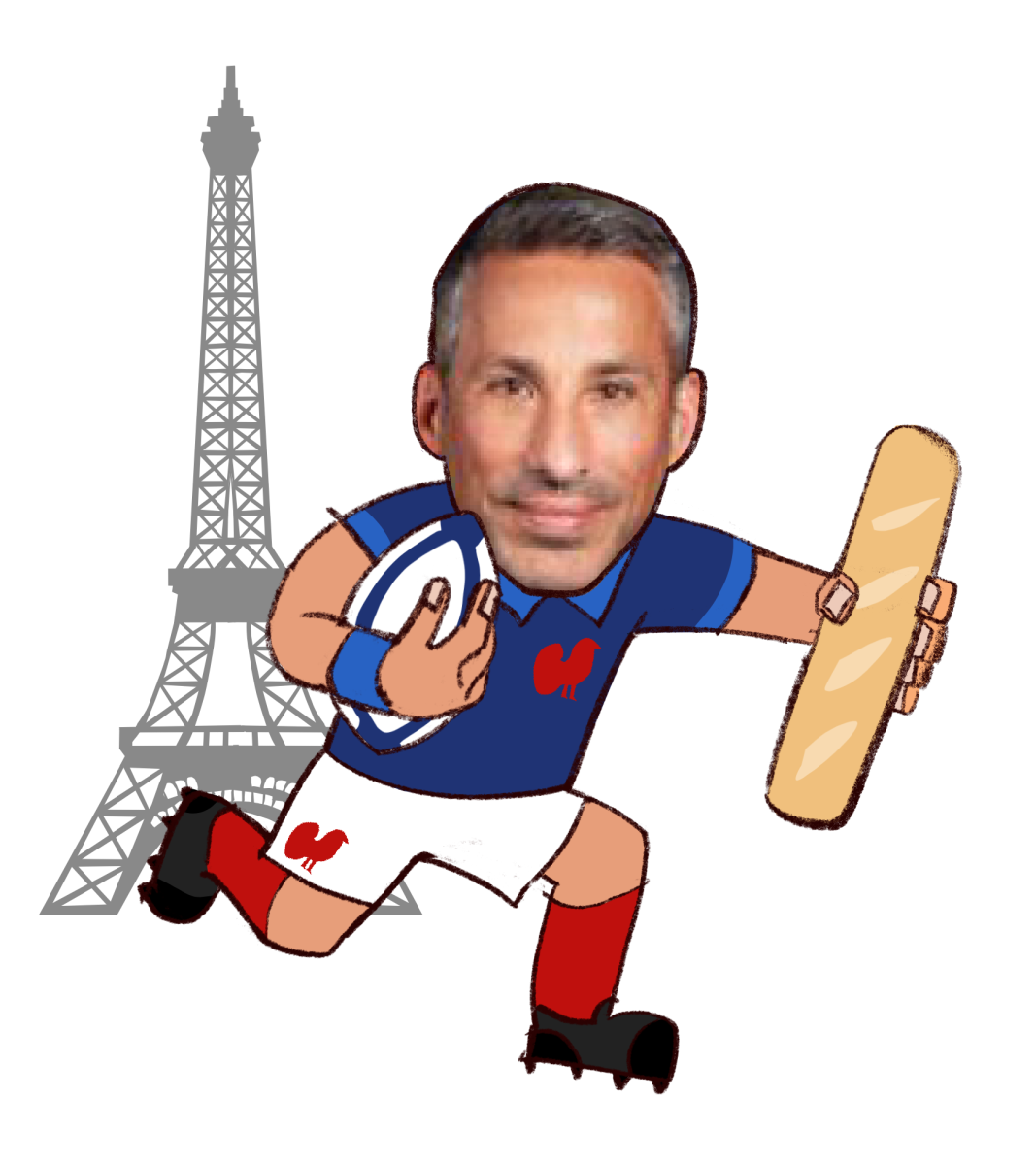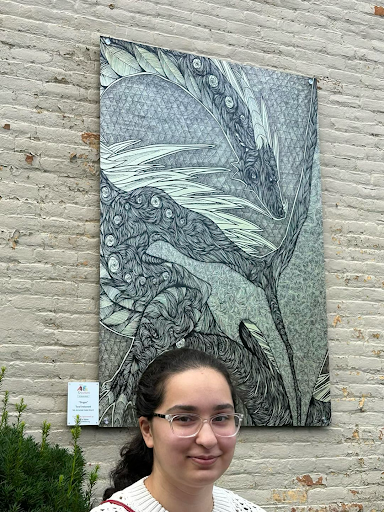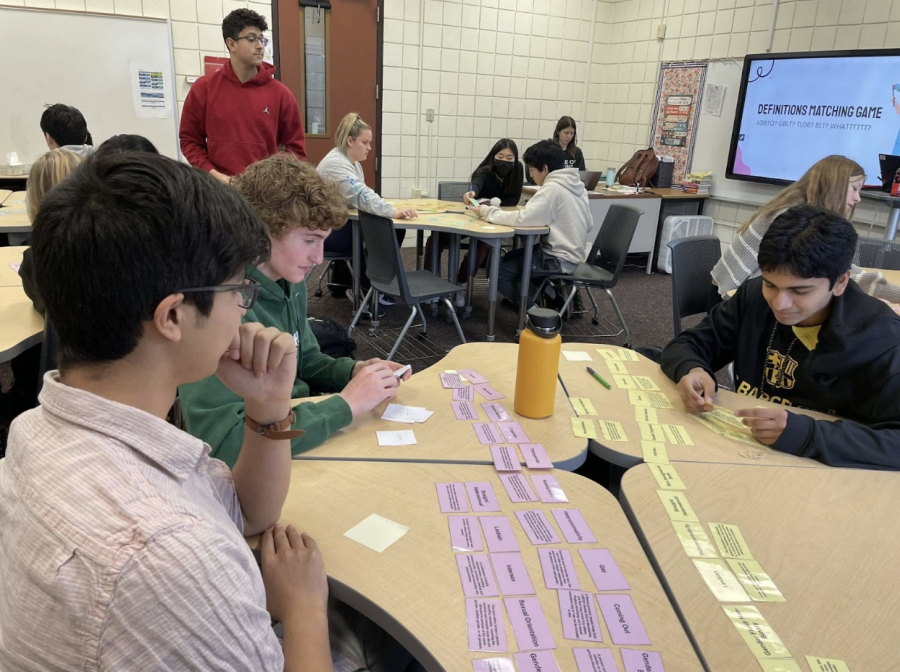For students, by students
Planned Parenthood Peer Educators teach sex education
IT’S A MATCH Ninth-graders in a Peer Educator lead health class play a matching game with different LGBTQIA+ terms and their definitions “It was really interesting learning about LGBTQIA+ rights and lack of rights, and what we need to do to change that in the future,” said Henry Beck ‘26.
March 24, 2023
For Tendo Ruwende ‘24, a service opportunity at the start of her sophomore year sparked a lifelong interest in reproductive health, education, activism, and psychology. As one of Greenhills’ five Planned Parenthood Peer Educators, Ruwende educates students across Washtenaw county about all things sexual health and LGBTQIA+ in her role as a Peer Educator.
“I didn’t know what the program was and filled out the application on a whim,” said Ruewende. “I researched more about it after the fact and got really excited.”
After receiving the news of her acceptance, Ruwende began her 40 hours of mandatory training.
“We had meetings, some of which were in person and some of which were on Zoom,” said Ruwende. “Speakers would come in to teach us about different topics like anatomy and STIs.”
Peer Educators also have specific LGBTQIA+ centered training and learn how to help peers that are struggling with homelessness or domestic or relationship violence.
“We end our training with a baseline of knowledge to be able to help our peers based on whatever situation they may be in,” said Ruwende.
Once their training is complete, the Peer Educators go to schools in their communities to educate their fellow students. Currently, there are two main programs being taught: contraception and LGBTQIA+ 101.
“We give presentations in both Greenhills and other schools across Washtenaw County, the majority of which are public,” said Ruwende. “Whenever I go to schools and present it makes me realize how important this role is for a lot of people. At Greenhills we have a lot of resources, but when you go to different schools you’d be surprised that a lot of what we teach is not common knowledge.”
The Planned Parenthood Peer Education program was founded with the goal of getting youth involved in sexual education.
“We know from research that students learn best from other students, can see themselves in other students, and can use them as a resource, which makes this program so valuable,” said Kennedy Scott, Community Outreach Educator and Peer Education Coordinator for Washtenaw County.
Although the bulk of what they do is present in high schools, with a virtual option for home-schooled students, Peer Educators are also encouraged to let their communities know that they are available for support outside of the school setting.
“We put ourselves out there on social media and say, ‘We are peer educators and we live near you, so if you need help or anonymous guidance for anything we are here,’” said Ruwende. “We put out our contact information like our phone number, social media, and email. I’ve gotten chances to help people not only at Greenhills, but at other schools as well with questions about getting birth control and setting up appointments for well person exams.”
Along with being active on social media, Peer Educators host menstrual product drives, attend events such as Pride month celebrations, and can get specialized training to teach different workshops.
“In the past, we’ve gotten the opportunity to become facilitators for INᐧclued, an organization that helps LGBTQIA+ youth, and give sex education workshops,” said Ruwende.
Greenhills has had a long standing relationship with Planned Parenthood’s various educational programs.
“Decades ago, one of our faculty members who taught health reached out to Planned Parenthood, who at the time had an outreach program and would send instructors to schools,” said Athletic Director Meg Seng. “Those instructors would come here on a regular basis and would teach a whole unit to a health class, so they were here for a few weeks. They would go through the services offered by Planned Parenthood and have really great conversations with students about human sexuality. We did that for a long time, and I don’t know if that program died out for them, but we started having them occasionally come in for assemblies. We’ve had a good relationship over the years.”
The effects of the overturning of Roe v. Wade, the 1973 U.S. Supreme Court decision that established the constitutional right to abortion, have been felt throughout the program. Peer Educators have been reached out to with questions and came together to go to protests.
“When there was uncertainty about the future of abortion rights in Michigan, people were scared,” said Ruwende.” I had people DMing me asking, ‘What does this mean for me?’ and I would answer their questions and remind them not to worry because we still had the right. My role hasn’t changed too much because abortion is still legal here in Michigan, but for a second I was scared and upset that this right could’ve been taken away, which motivated me to do more work.”
Change has also been apparent on the administrative side of the program, with an increase in applicants.
“There’s a lot more interest in the program,” said Scott. “We now get well over 50 applications each year. The overturn of Roe v. Wade has brought youth in and made them more ignited in this fight than before, when things weren’t as at risk.”
Tillie Klein ‘25 is one of many students who was motivated to apply to the program after the overturning of Roe v. Wade
“I’m interested in women’s rights, and especially since Roe v. Wade was overturned last year, it’s something I’ve become more passionate about,” said Klein. “It’s felt more urgent.”
Some Peer Educators, like Klein, pursue their position knowing that they want a career in medicine and public health, but for others, joining the program sparks that interest.
“I never thought I would actually be interested in this, but for my Advanced Research project I want to go into gender psychology or social work,” said Ruwende. “I’m trying to implement this newfound interest that being a Peer Educator has brought me into a future career and my college studies.”



